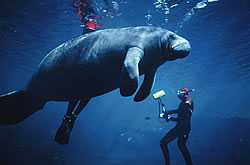Protective coating for underwater optical instruments
Underwater camera viewing systems have many useful applications; in the inspection of structures and sub-sea installations and mainly for oceanographic and marine environmental monitoring. Monitoring seawater quality is a direct and accurate measure of pollution while a number of oceanic processes are immediately involved in climate changes and should also be closely monitored. The integrity of the data collected from the various possible platforms like unmanned underwater vehicles or floating buoys is substantially reduced after a relatively short period of time. The reason being the adherence of micro-fouling organisms on the window surface, a problem known as bio-fouling or marine fouling. The micro-fouling organisms like bacteria or algae are found everywhere in the ocean and rapidly colonise optical surfaces. The formation of the bio-film on the optical glass apart from diminishing the integrity of accumulated data also results in the need for more frequent inspection and maintenance of the instruments. The BROS project, Bio-fouling Reduction on Optical Systems has developed an innovative conductive coating of suitable optical properties, which is polarised at a suitable potential to generate chlorine compounds. The chlorine compounds spread over the window's surface and prevent the adherence of micro-organisms. The coating has been used successfully for protecting an underwater video camera against bio-fouling for several months. The SME that owns the exclusive rights of this protective coating is looking for instrument manufacturers who wish to apply the proposed technology. The company offers the possibility of testing the efficiency of the anti-fouling technologies on the manufacturer's products at the company's own marine testing station. For more information on this project you may visit: http://www.eng.gla.ac.uk:80/marine/bros.htm

